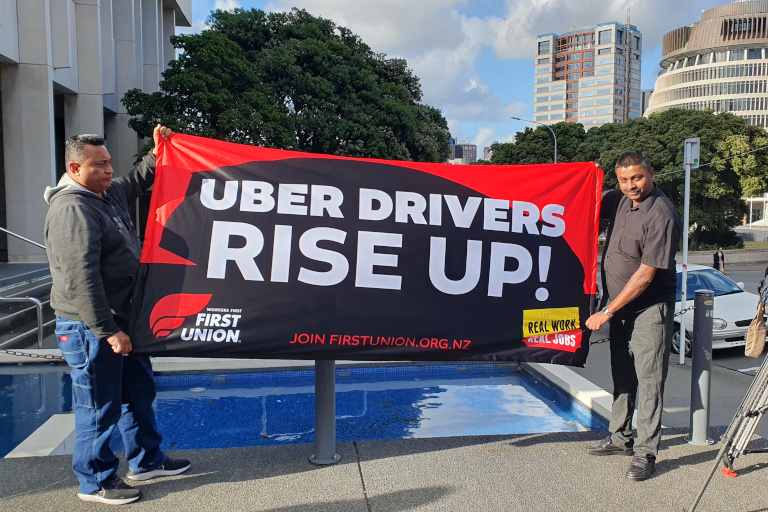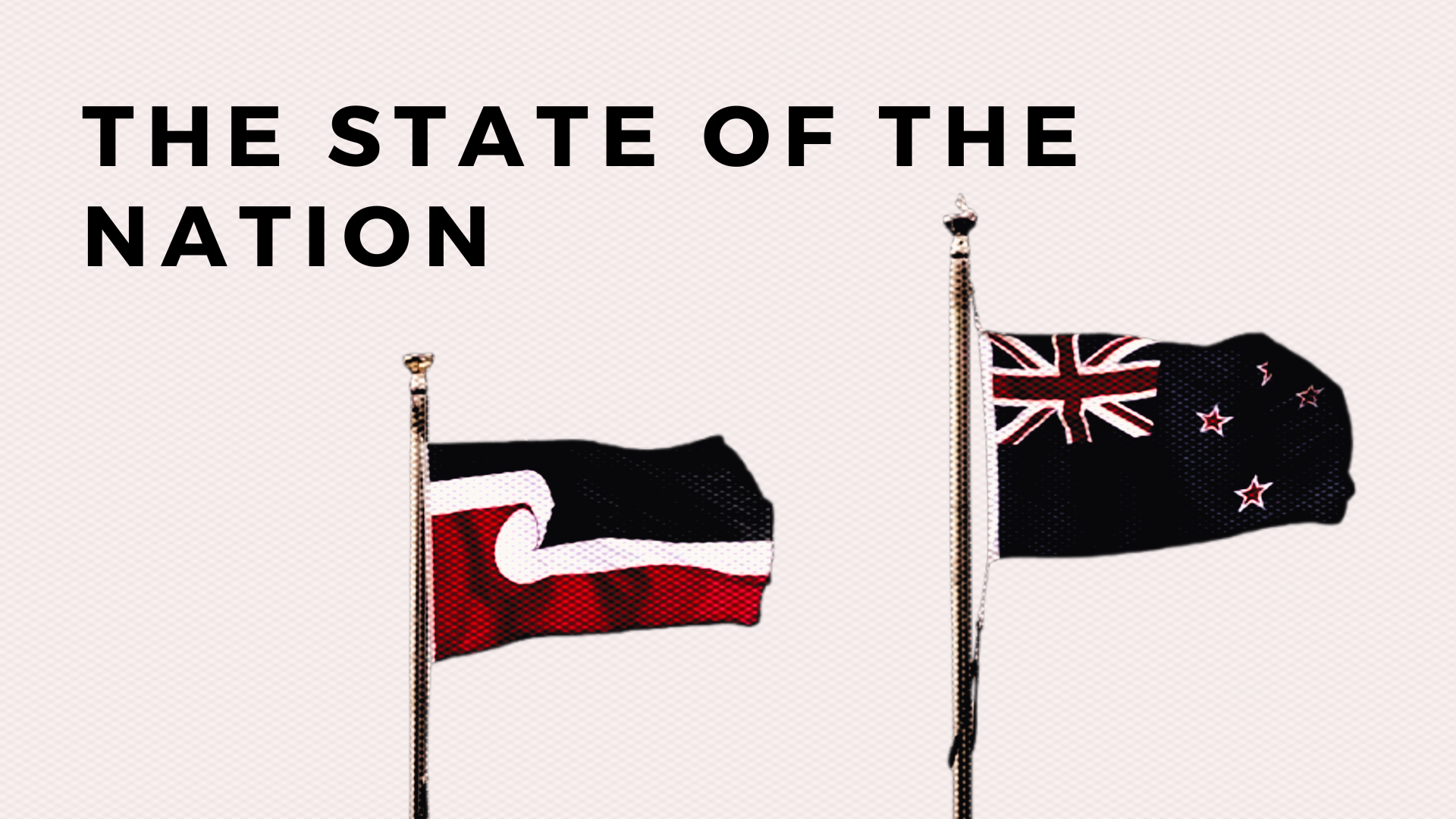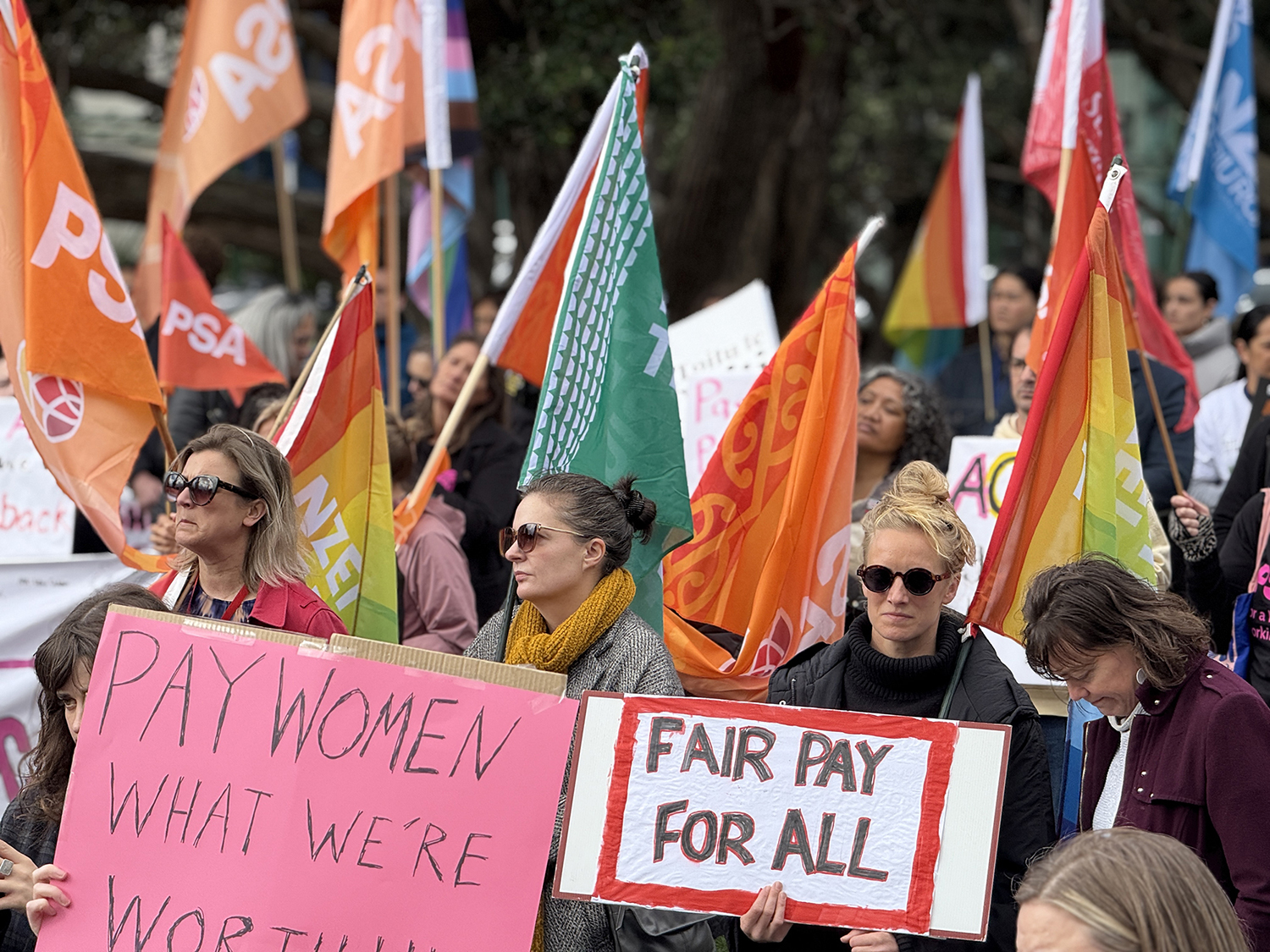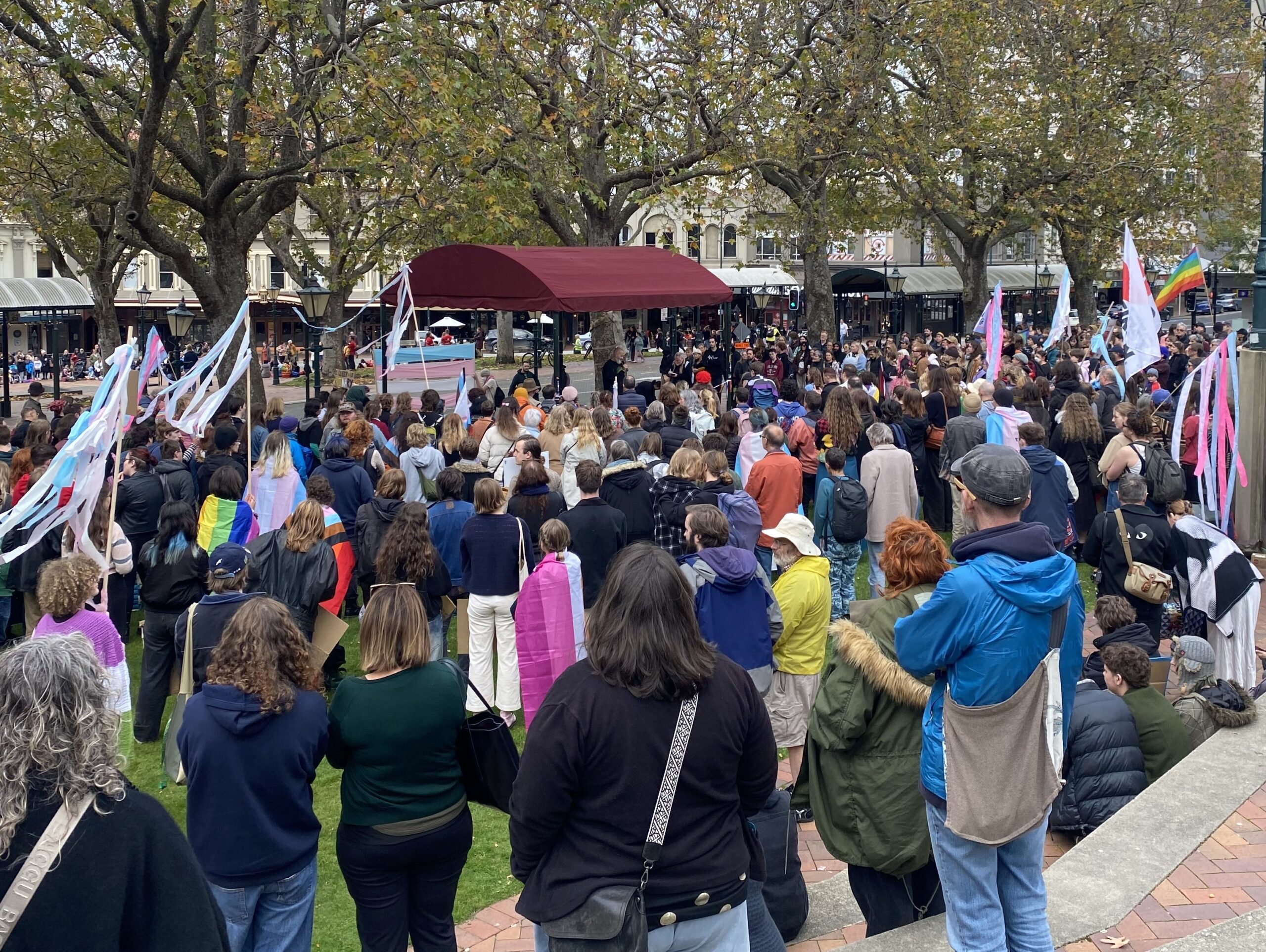On 19th March around 40 people rallied outside the Court of Appeal in Te Whanganui-a-Tara / Wellington in support of Uber drivers. The rally called by First Union, which has more than a thousand Uber driver members, was held in the hour before the start of a two-day court hearing. Uber is seeking that the Court of Appeal overthrows a 2022 Employment Court determination that Uber drivers should be subject to employment law. In other words, Uber is seeking to reclassify its workers from permanent employees to contractors to allow exploitation without the employee rights set out in employment law.
Uber calls its passenger transport operations ‘Rideshare’, and its food delivery operations ‘Eats’. Both services are entirely reliant on the labour of drivers. A flyer circulated at the rally read: ‘Uber drivers are organising through FIRST Union for the same rights to the minimum wage, sick leave, holiday pay and collective bargaining as other workers in Aotearoa.’ In the 2022 case, taken against Uber by both First and E tū unions, Uber ‘characterised the Rideshare and Eats businesses as simply facilitating a contractual relationship between other players, namely a contractual relationship between the driver and the rider (Rideshare) and between the eater, the driver and the restaurant (Eats).’ The Court found, however, that ‘Uber’s very hands-on involvement in fare setting and review, and retaining to itself the ability to decide outcomes (and accordingly how much a driver would earn from a particular transaction), stands in contrast to its characterisation of the customer as being in a direct contractual relationship with the driver’ and ‘Uber does not simply connect individuals (the driver and the rider; the driver, the restaurant and the eater). It creates, dictates and manages the circumstances under which its business is carried out, and driver labour is deployed in order to grow that business. All of which points firmly towards an employment relationship.’ It is this determination of an employment relationship that Uber is seeking to undo.
First Union strategic project coordinator Anita Rosentreter spoke to the strength of drivers who were rising up against the immensely wealthy international tech giant corporation that is Uber. Former driver for Uber Lalogafau Mea’ole Keil said the rally and court cases are “a fight for fairness, justice, and to be recognised as a worker in the workplace.” Keil gave several examples of the power Uber holds over its drivers, and the systemic barriers to drivers getting a fair resolution when disputes arose.
Uber’s ongoing fight to minimise worker conditions is just one example of the expected behaviour of all capitalist enterprises. Companies seek to maximise profits, and they can do so by reducing working conditions. Workers, through unions, have a long history of successful struggle against their bosses to win what we nowadays recognise as ‘employee rights’ which are coded in legislation. By classifying workers as contractors rather than employees, companies such as Uber seek to dodge the legal enforcement of our hard-won rights. Another such example is NZ Post, which is currently seeking to reclassify its workers to contractor status. The Postal Workers Union is taking this issue to the Employment Court in July.
Although it is necessary to fight these battles in the courts, the primary responsibility lies with the parliamentarians responsible for the legislation that the courts interpret. These court battles cannot be the entirety of the unions’ strategy. They must make the political demand that Labour, the Greens and Te Pāti Māori commit to raising a stink in Parliament, and as soon as possible to amend the employment laws to strengthen workers’ rights.
So we say to the Uber drivers “Kia kaha!”, and to all workers “We must stand united with the Uber drivers out of basic solidarity, but also because these attacks could affect us all.”
References:
Postal Workers Union of Aotearoa (March 2024). Redback newssheet, 163.









